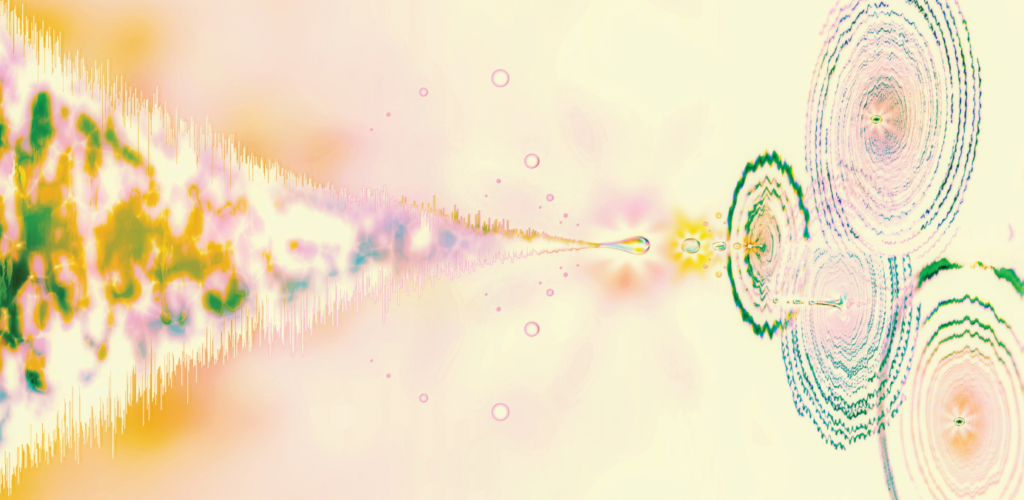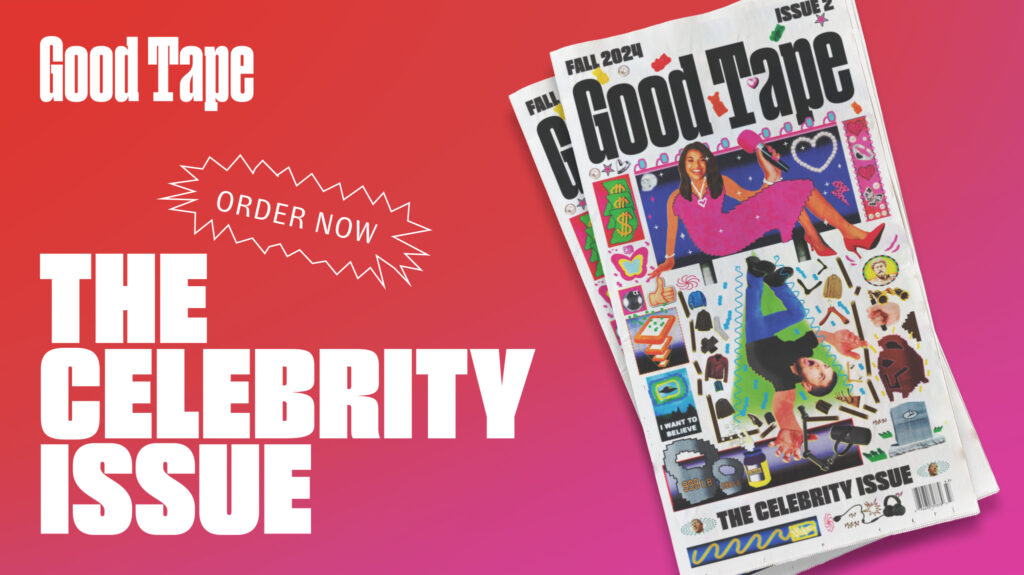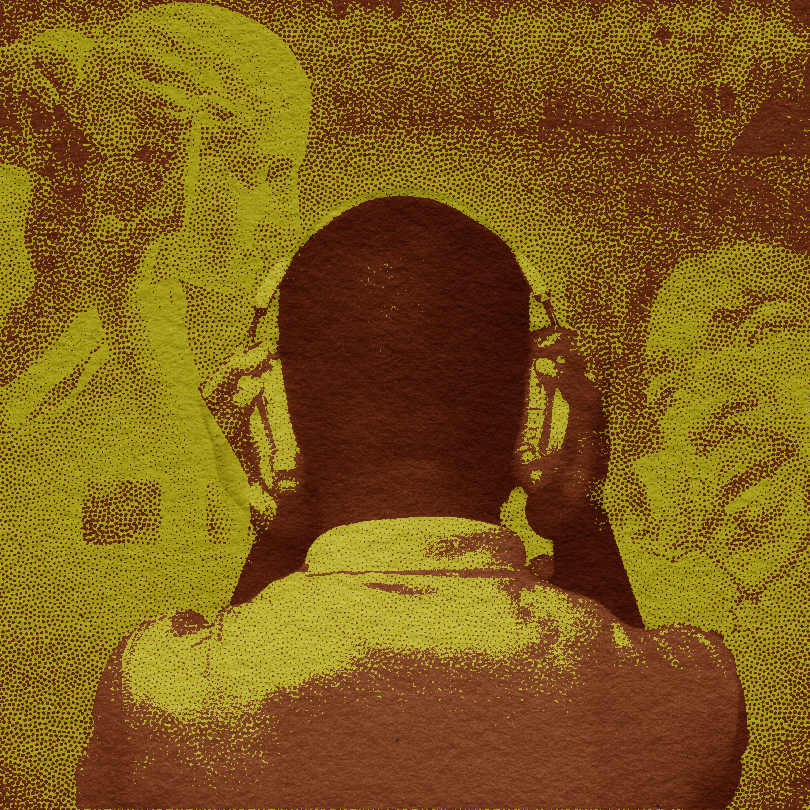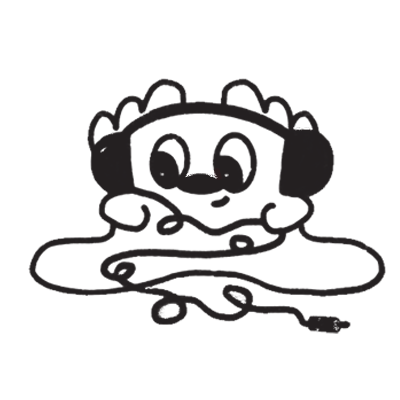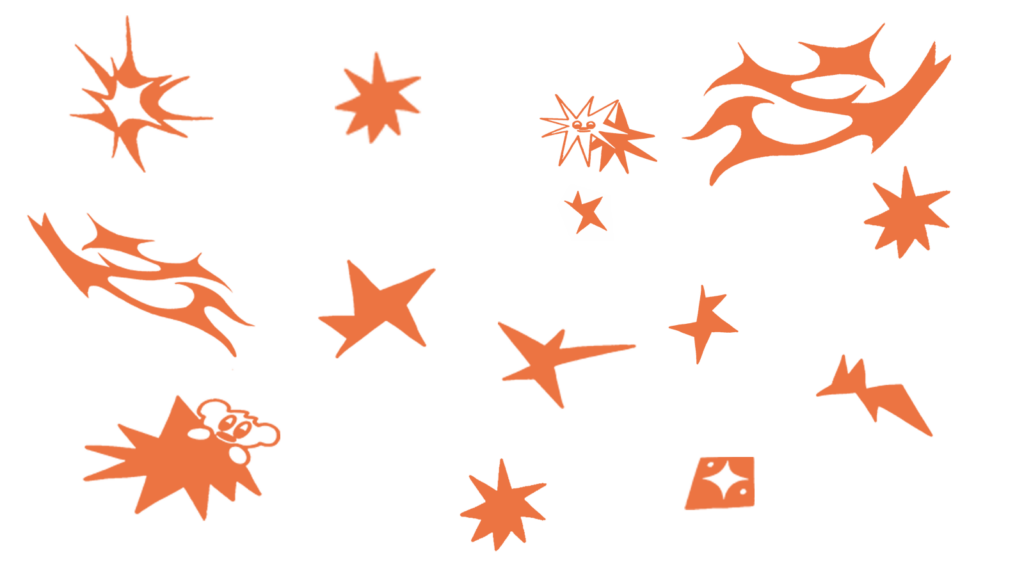Centuries of Sound
The history of recorded sound does not begin with the story of Thomas Edison triumphantly tracking a recital of “Mary Had a Little Lamb” onto a wax cylinder in 1877. Modern audio did not emerge fully formed with such a neat narrative—it stumbled forth, wild and alien, bewildering the masses into the 20th century.
The first episode of James Errington’s wondrous podcast Centuries of Sound captures its origins, unwinding the lesser-known experiments of pioneers like Édouard-Léon Scott de Martinville, who invented the earliest known sound-recording device. These early snippets might have well been documented by a satellite voyaging past Neptune. An 1857 recording of The Lord’s Prayer, made on Scott’s primitive “phonautograph,” crackles like a broken tweeter in a boombox. A recitation of Othello from 1860 sounds like a jammed blender drowning in a well.
Since beginning the deeply personal project in 2016, Errington has explored the years between 1859 and 1945, collecting and remixing hundreds of recordings from internet and audio archives into hours-long soundscapes. What results is less of a linear past and more of a cultural tesseract, a swirling world of human joy, tragedy and existence, stitched together with ballads and speeches and ripples of abstract noise.
It is an evolution of the fascination that began when Errington was a young man who began crafting mixtapes in his bedroom at the age of nine. When the U.K. native moved to China to teach English in 2006, he began expanding his vision for storytelling through sound and created an experimental podcast he dubbed Last Night a DJ Killed My Dog. By 2008, the series had garnered a handful of regular listeners—Errington deadpans that he needs to stop paying for the episodes to be hosted online—but it served as a proving ground for his touch as a producer.
“The first one was about songs and sounds with counting and lists of numbers. The second was all about waking up in the morning, breakfast, that kind of thing. Then I started doing one for each animal year in the Chinese Zodiac,” Errington says. “I think I found my style by putting these together.”
Centuries of Sound is a more ambitious undertaking. Having covered nine decades since the show’s inception, the 44-year-old estimates he will need years to catch up to the present moment, as making the podcast remains a hobby, not a job. Errington works long hours as an English program leader at a London university and spends his nights tinkering away, sorting audio clips while his family rests.
Naturally, the rapid rise of radio, as well as the “talkies” and field recordings of the 20th century, have complicated the workload for Errington. He is meticulous in reviewing recordings: “I always worry I’m missing out on interesting clips,” he says. “I’m trying to watch as many films from each year as I can.” But the obsessive energy at play is what allows Centuries of Sound to have such entrancing shifts in material, tone, and style, unfolding like an old but oddly familiar tapestry dug out from the eaves of an aural attic.
By the turn of the 20th century, you can hear a revolution unfolding in the world of audio recording, with music and voices becoming vivid and lifelike in a new way. The medium drew creative luminaries like moths to a flame—consider the legendary Soviet filmmaker Dziga Vertov, whose radical radio “sound collages” are featured heavily in the excellent episode for 1925. That year saw the birth of the modern microphone, which puzzled performers and engineers but created a whole new (literal) dynamic. Recording from the field became more viable than ever, thanks to the portability of this newfangled equipment.
Again and again in Centuries of Sound, you hear the power of ingenuity and the pain of social strife intertwine. By 1932, the economic drain of the Great Depression has effectively frozen what was a booming American recording industry. To fill the void, Errington refocuses on the U.K., Caribbean, Eastern Europe, and the Middle East, a practical choice given the audio available, but also a commentary on shifting cultural tides. Then there’s Errington’s most recent release, the episode for 1945, split into two parts with more than seven combined hours of sound. It is no easy feat to weave pop miscellany, wartime speeches, everyday revelry, and Holocaust reflections into a coherent soundtrack. Centuries of Sound pulls it off, punctuating joyous exclamations and peppy tunes with surreal hits of somber reality.
Errington admits it is daunting to gaze upon the sheer amount of recordings that stretch out ahead of him. Centuries of Sound isn’t even his only project: he’s also producing a series dubbed Texture and Artefact, where he created soundscapes with recordings of his commute, London protests, and even surreal tales of his time working at a call center, where he was forced to hear Geri Halliwell sing “It’s Raining Men” over and over on the hold line.
Yet none of his audio projects have the scale and scope of Centuries of Sound, which spans 63 episodes and more than 100 hours so far. Few podcasts do. On the cusp of his next release, for the year 1946, Errington and I sat down over Zoom to discuss the origin and future of a brilliant, stirring series.
![]()
Good Tape: It seems like moving to China triggered a creative spree, even after your many years of toying with audio and music mixtapes. How did this lead up to CoS?
Errington: After I got married, I was living in a place called Tongzhou, just outside Beijing. And the people I knew just didn’t listen to music at all. If I played music, my in-laws wouldn’t turn it off—but they would turn it down so low that you could just hear the tiniest little noise in the background [laughs]. I think they found the entire idea of music kind of annoying. So it became my own private thing at that point, and I started thinking about projects to work on.
Was that a pretty big culture shock? Maybe it was the right inspiration.
I think I just enjoy culture shock. If things seem strange and unsettling, then I’m all in. My car’s stereo is broken right now and it’s stuck on a [Digital Audio Radio] station. One of the few stations I can tune into is this experimental station, Resonance FM, and I’ve been driving the family crazy with it the last few weeks. But I can’t help thinking: you know, this 20-minute ambient noise, there’s nothing that makes it less appealing than a two-minute pop song. It doesn’t sound harsh or unpleasant.
Why is this ambient noise not what people like most? Why would most people find another station when that’s on? I don’t have an answer for it, but it’s weird that I gravitate toward sound as an experience rather than a function for nostalgia or something like that, you know?
Did your affection for ambient sound naturally evolve with your taste over time, or did you have any direct influences?
I feel like it’s always been there. I’ve got cassettes that I recorded of static and noise from half-tuned radios when I was 15 or 16. I just thought that was an interesting noise. And you know how people clean vinyl records with PVA glue? Before I had heard of that, I was already covering my records with PVA glue, peeling it off, and then playing the glue. I would record that onto tape, and you’re playing the space between the two tracks.
What I find interesting about sounds are the textures and the artifacts left behind by the ways that we record audio. I feel like there’s no such thing as real reproduction of sound. It’s a subjective thing to start with.
How did you get Centuries of Sound off the ground initially, though?
It was a lot of different stages, rather than just one lightbulb moment. Making the mix in 2016 was a spur-of-the-moment thing—I was just excited about all the music and sounds of that year. I had a few weeks where my wife and my youngest son were stuck in China because of horrible visa issues, so it was just me and my older son, and I was working but not very much. That was the first big year mix I made, and I was really happy with how it gelled together. That’s what gave me the big motivation to get into the proper [historical] mixes. The first 10 years of recorded sound, you know, it’s not… particularly listenable [laughs]. But I was inspired to push through it. The podcast isn’t my job, so I have to carve out time for it every week.
There’s a big spreadsheet which I put together. That was the start of things. I was using the University of California, Santa Barbara’s sound archive, as well as the [Internet Archive] and Russian Records. Those were the big three that I got stuff from in the early days. I had someone program a JavaScript thing to just mass download everything for a single year from those sites. And I got to a point where it was too much — I remember with 1910, I was at 2,000 or 3,000 records for the year. Two-thirds were terrible quality opera recordings. It’s just too much to scour them all.
The important thing is I always work ahead. Right now, I’m listening to 1957. I’m not listening to 1946. I find all the records I can and I source them, find some way to download it or otherwise get ahold of them.
Then I have two run-throughs: I put them on my phone, I listen to them by track name and by artist name. I’ll have a nice folder of a couple of hundred tracks, then I’ll leave them alone for a year. When I come back to them, after that year or longer, I listen through them again and make notes, categorizing tracks into different types of sound or moods. I make notes on what I’ll cut out. And then I have to give each track a score.
If it’s got a score of 7.6 or higher, it’s probably going to get into a mix. If it’s got a 7.5, it might. Anything below, definitely not, but 8 or above, it’s definitely going in. It’s very Pitchfork, isn’t it? [laughs]
Getting through 1945 and WWII must’ve felt like a real milestone for the series. Did anything surprise you about navigating such an era that has been covered so much?
I’m so glad to have finished the Second World War.
When I was starting it, I was thinking that this is the bit of history everyone’s interested in. If you turn on any history channel on TV, these are the years they focus on, you know? I thought it would make the era more rich, more thoughtful, with more material to available.
But I learned it’s the opposite. Everything that you find has been mediated so much by people. It’s almost like the real feeling of the time is even more lost to us because we’ve built these false memories around the war. It was a horrible time, but there’s so much media that presents it as a time of triumph. That made it more of a struggle.
You won at the 2019 British Podcast Awards and have built up a niche audience, but what does it look like?
I had a couple thousand downloads of each episode in its first month of release. It built up over the first four years and has been at a plateau since then. I am out of the habit of checking stats—it doesn’t seem urgent when there aren’t any ads.
Patreon gets me about $300 to $400 a month, but I probably spend $150 or so on web hosting, sourcing CDs, et cetera, so Centuries of Sound doesn’t really pay for the time I spend on it. Another podcaster very kindly gave me £100 for web hosting last year when I couldn’t afford it.
So when it comes to future growth, maybe playing live shows might help, but I think ultimately it would require having a larger organization or influential artist take me under their wing. I realize the shows are not broadcastable due to rights issues. Maybe making soundscapes for shows or museums is possible.
Given the challenges, when you look toward the horizon and the work that’s left, what keeps you going?
When I started university for film studies, I had the preface from Oscar Wilde’s The Picture of Dorian Gray on my wall. One of the things he says is that the best and worst form of criticism is a mode of autobiography. I think that’s always been important to me: the first thing is your reaction, the feeling you get out of it. Everything else comes later. If you’ve left out that step, then you’re just a collector, ticking boxes off a list. That’s vital.
I think everyone should express themself and make things. I think that’s brilliant. But I feel that podcasting has become a shorthand for just chucking something lazy together and putting it out there. It’s sad. When people say they want to start a podcast, and their concept is just them and their friends talking about whatever, I wonder: why is that an interesting idea to you?
For me, the goal with each episode of Centuries of Sound is to immerse myself in that time and get a feeling of what life was like during that year. But of course, that’s never really going to happen, because it’s a very skewed representation that I’m consuming. What I can do is make an emotional narrative. When I’ve tried to make things too literal, going month by month, it works less well. The more realistic I make it, the less interesting it gets.
![]()
All episodes are available to stream at centuriesofsound.com. Downloads and additional content are available on Errington’s Patreon.
Eddie Kim is a journalist based in San Francisco who writes about culture, industry, and social conflict. You can see more of his work in VICE, Slate, and MEL, and at eddiekim.net.
